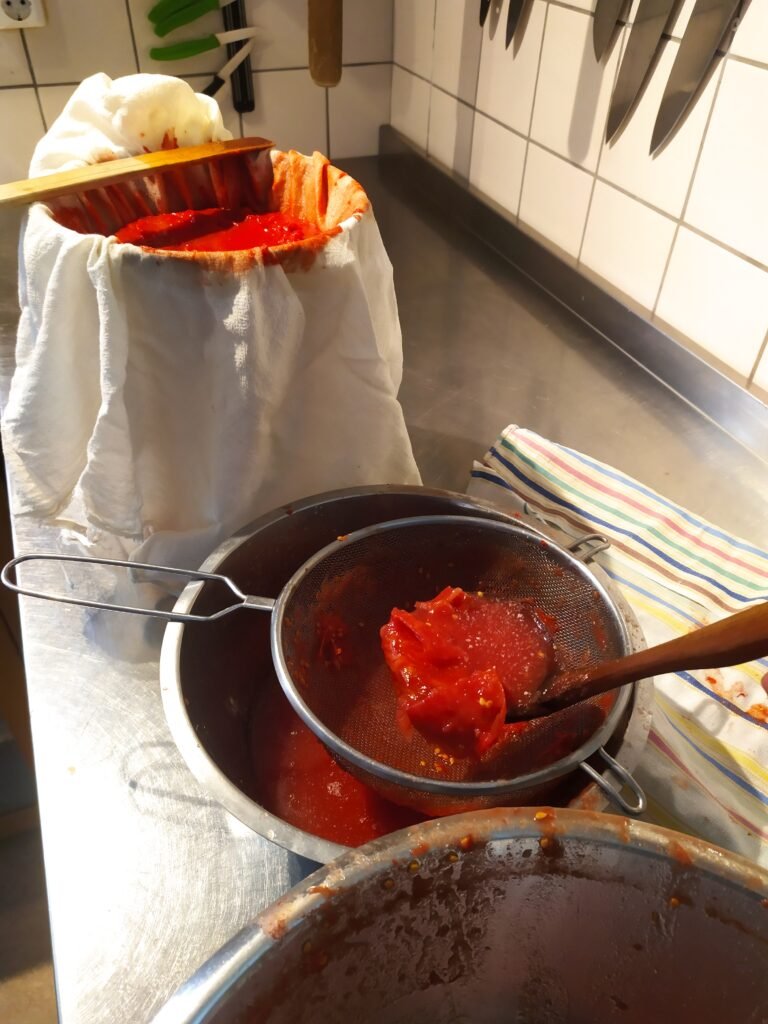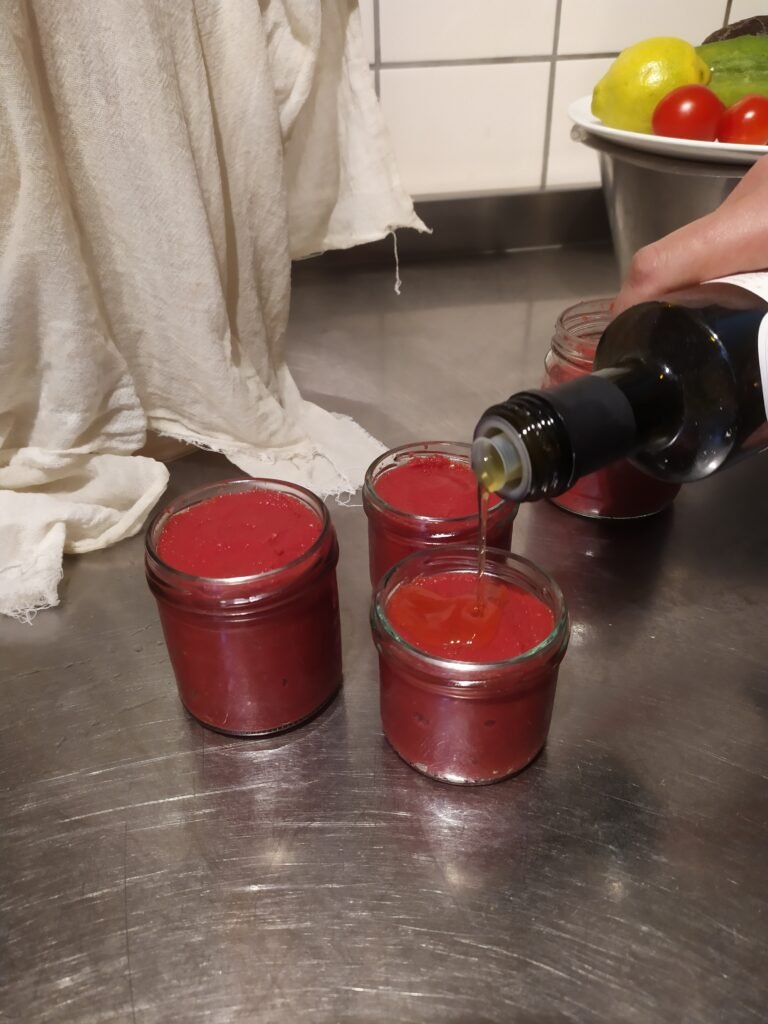(I have only made this recipe for home use so far)
Ingredients:
5kg ripe tomatoes
1tbsp salt
Equipment:
clean tea towel
Large bowl
Moulinor or sieve and a wooden spoon
cheese cloth




Roughly chop and crush the tomatoes in a bowl, then add the salt*. Cover with a loose lid or kitchen towel. Stir several times a day (3-5) until it starts bubbling, and continue stirring occasionally until the bubbling stops. This process takes 3-5 days. Once the bubbling has stopped, a white film will quickly form on the surface. Stir it often to minimise the film, but if it becomes excessive, remove it with a spoon. It’s best to be prepared for the next step as soon as the bubbling stops to avoid this.
Pass the mixture through a food mill (moulin) or sieve (press it through using a wooden spoon). Discard the skins and seeds (or rinse and save the seeds for next year’s tomatoes).
Next, pour the watery puree through a cheesecloth and let it drain for 8-12 hours (I have used the remaining liquid as a base for soup, but it can be quite acidic. Hopefully, you can find another use for it, otherwise, discard or compost it). If you want a highly concentrated paste, let it drain for a longer period. If you get a sunny day, you can hang the cheesecloth outside on a clothesline. Transfer the paste to a jar with as little air space as possible and cover it with a generous layer of olive or other vegetable oil. Seal with a lid. Store it in the refrigerator, but it can also work in a cool pantry. Use it like regular tomato paste, adding it towards the end of cooking to get the most from the beneficial bacteria.
This year, we had an abundance of field tomatoes, particularly “Koit,” which contains a lot of water but also yields a large quantity of fruit! This recipe should work for any tomatoes.
*If you want to save the seeds, hold off on the salt until the end.

